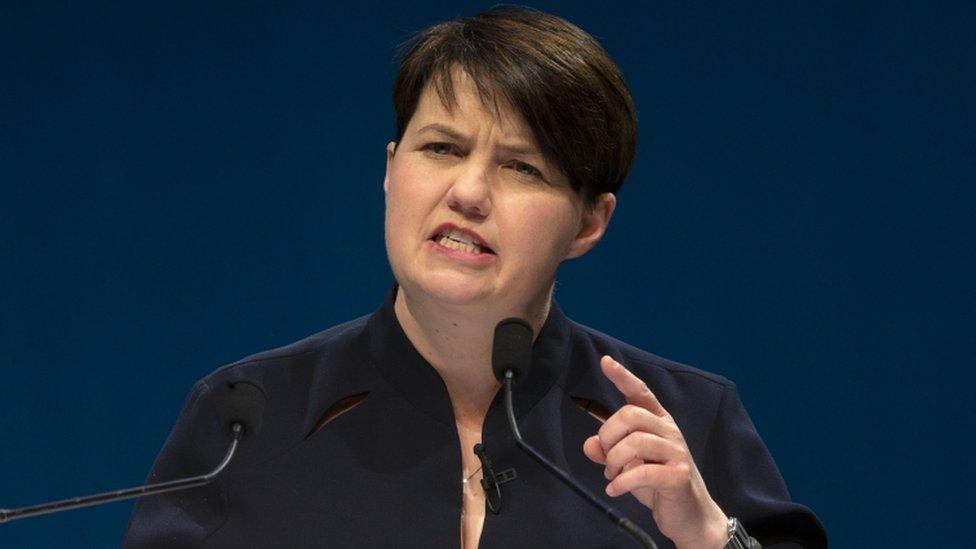General election 2019: Why Labour is lost in the middle in Scotland
- Published

Jeremy Corbyn sounds more relaxed than his predecessors about independence
Ask voters in former Labour strongholds why they left the Labour Party, and they almost always reply: "I didn't - the party left me."
Some blame Jeremy Corbyn for taking the party too far to the left. Others blame Tony Blair for taking the country into the Iraq War.
But the unifying theme is that voters no longer feel that the Labour Party are standing up for them or for Scotland, and they are very happy to give their support to the party they identify as caring about their national needs - the SNP.
The Labour fall in Scotland has been as almost as swift as it has been dramatic.
Less than 10 years ago, in the 2010 general election, it scooped 41 out of Scotland's 59 Westminster seats - even as the party lost power across the UK.
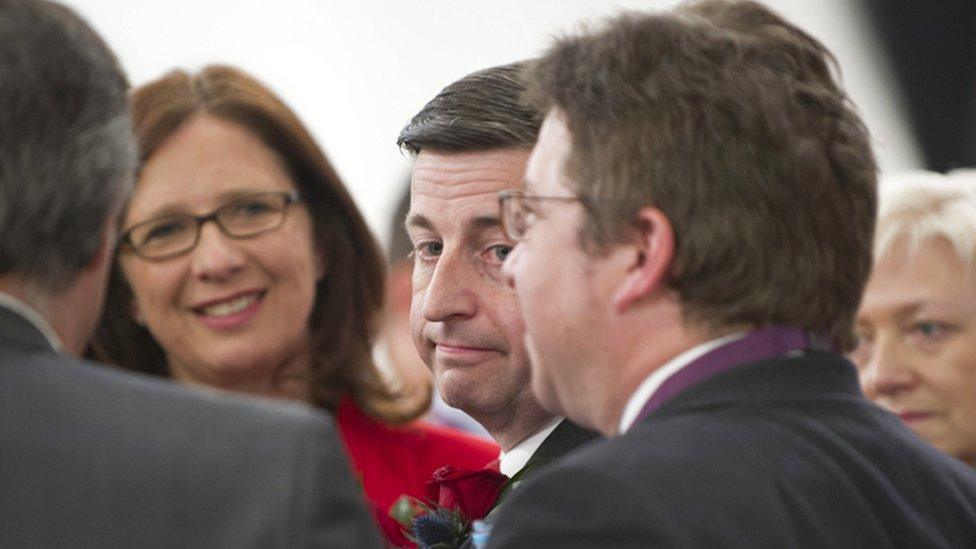
Douglas Alexander was among the Labour MPs who lost seats in 2015
Reaching a nadir of just one solitary MP in 2015, it staged a minor comeback in 2017, winning seven seats.
But those new Labour constituencies have wafer thin majorities over the SNP. And across Scotland the party are still in third place behind the Tories, who have more MPs and more MSPs in the Scottish Parliament.
In May's European elections, Scottish Labour fell to an all-time low of 9%. Fewer than one in 10 Scots voted Labour.
It's possible Labour could come fourth in this election in Scotland. It's a possibility that would have been absolutely unthinkable a decade ago.
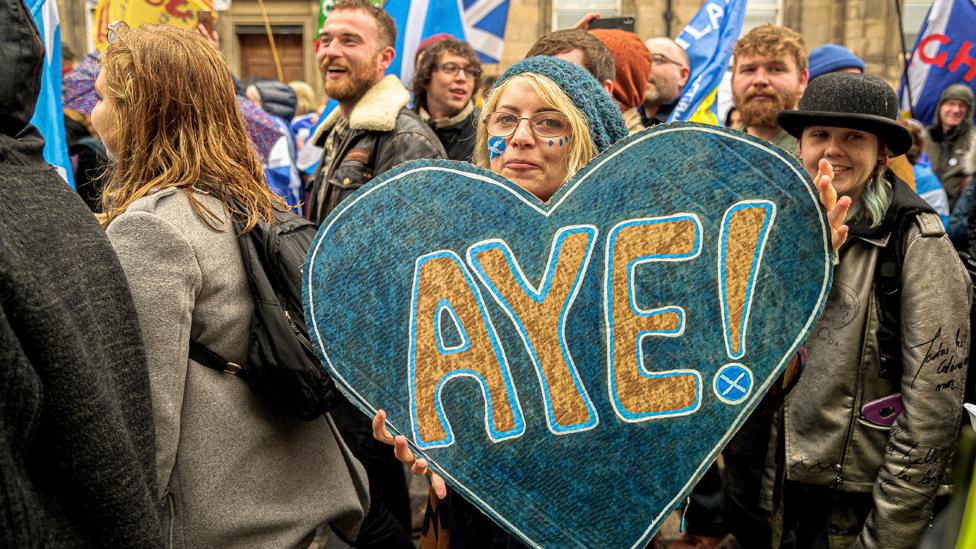
Labour have been squeezed out of the debate on Scottish independence
It is true that some in the Labour Party used to take their Scottish vote for granted. No-one can make that mistake now.
When Jeremy Corbyn became Labour leader, the party hoped he'd make the SNP look like moderate centrists and he would win back left wing voters to the red corner. But that project has had only limited success.
Most of their voters have been lost to the SNP. And many of those who still vote Labour in Westminster elections are sympathetic to the idea of Scottish independence - or at least to having another referendum to allow Scotland to decide.
So you'd think the Labour Party's flirtation with the idea of allowing a second vote on independence would be welcome. But instead it appears to have thrown confusion into the debate.
While the SNP are ferociously in favour of independence, and the Tories (and Lib Dems) implacably opposed, Labour seem lost in the middle. Squeezed out of the biggest debate in Scotland.
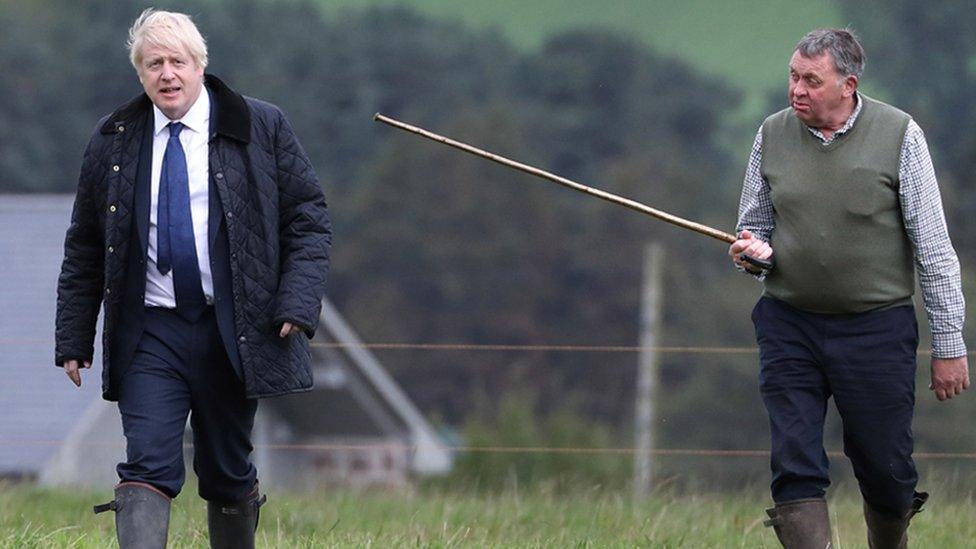
Former Labour voters say they do not want to see Boris Johnson in Number 10
Speaking to voters who say they will never vote Labour again, I always ask who they want to see in Downing Street. Obviously it's not going to be Nicola Sturgeon, so would they rather see Boris Johnson or Jeremy Corbyn enter No 10?
Corbyn is the almost unanimous reply. But that's not enough to make them vote for him.
The argument used to run that Labour - ideology aside - could not afford to allow Scotland to become independent because they'd never form a majority government in Westminster again without their huge block of Scottish MPs.
If they can't rely on Scottish voters to provide those MPs, then their practical objections may fall away. Which could be why Jeremy Corbyn sounds so much more relaxed about an independence referendum than any of his predecessors.
- Published29 August 2019
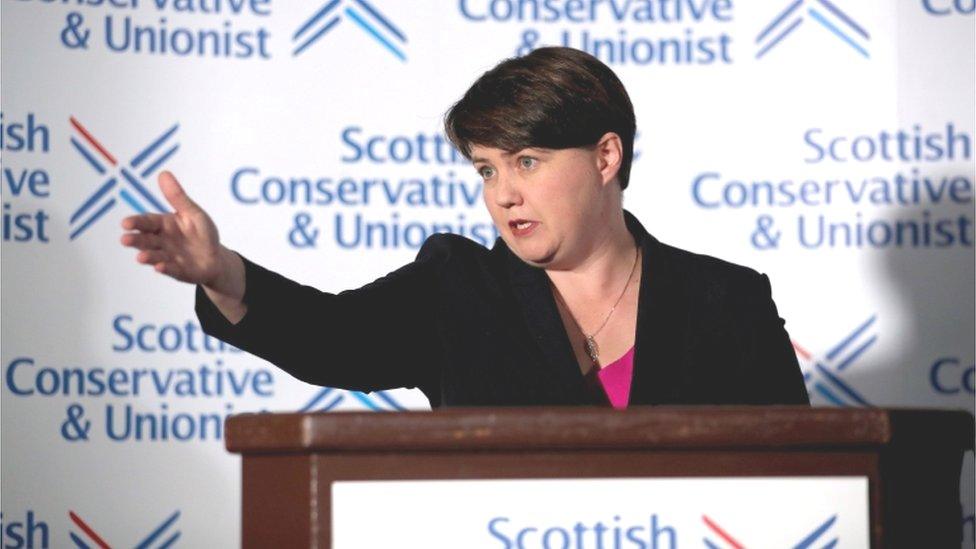
- Published29 August 2019
